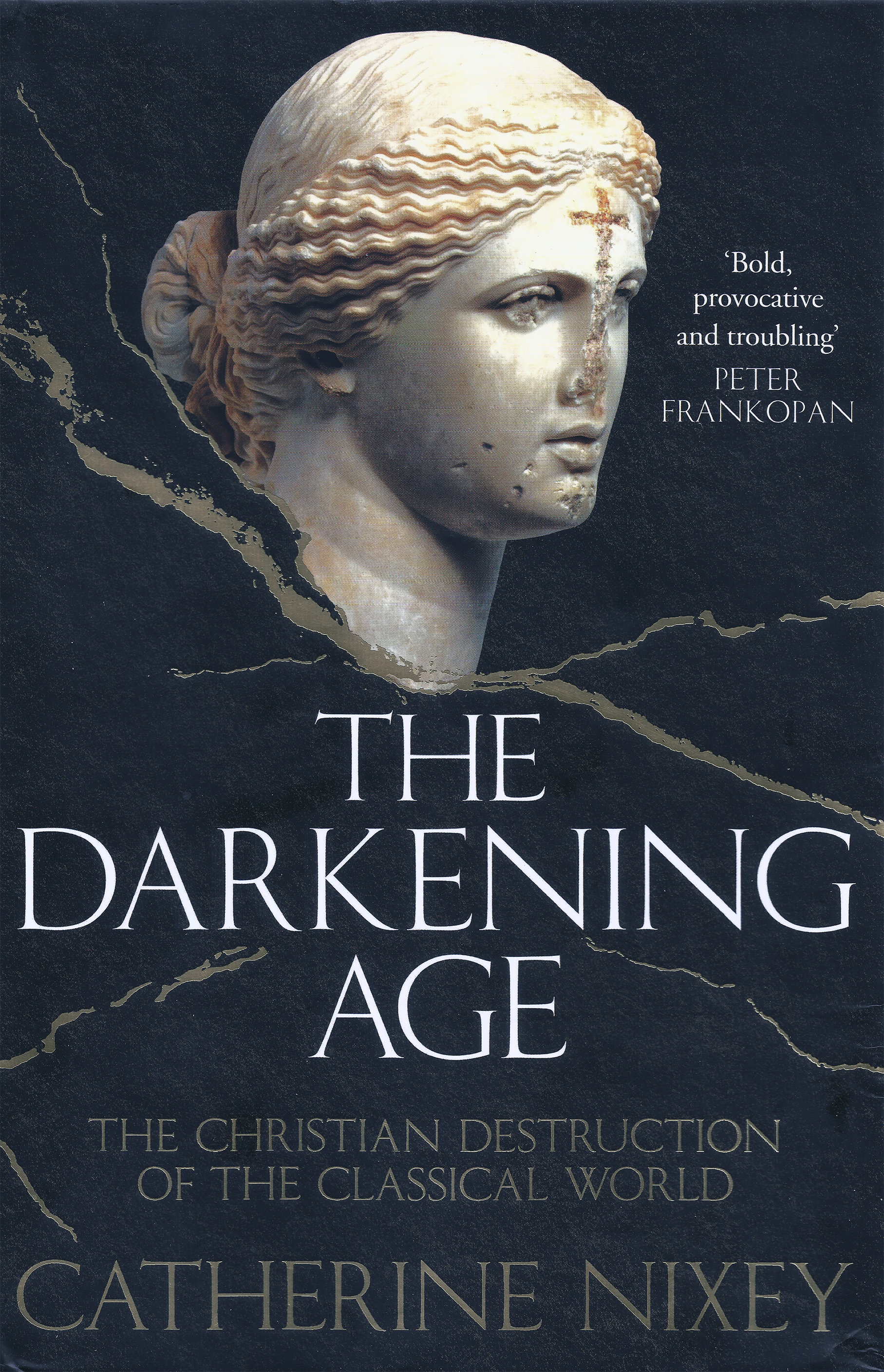Celsus and Democritus
Note of the Ed.: Celsus was Christianity’s first great critic. The following is an excerpt from Nixey’s chapter ‘Wisdom is Foolishness’:
 Celsus did not soften his attack either. This first assault on Christianity was vicious, powerful and, like Gibbon, immensely readable. Yet unlike Gibbon, today almost no one has heard of Celsus and fewer still have read his work. Because Celsus’s fears came true. Christianity continued to spread, and not just among the lower classes. Within 150 years of Celsus’s attack, even the Emperor of Rome professed himself a follower of the religion.
Celsus did not soften his attack either. This first assault on Christianity was vicious, powerful and, like Gibbon, immensely readable. Yet unlike Gibbon, today almost no one has heard of Celsus and fewer still have read his work. Because Celsus’s fears came true. Christianity continued to spread, and not just among the lower classes. Within 150 years of Celsus’s attack, even the Emperor of Rome professed himself a follower of the religion.
What happened next was far more serious than anything Celsus could ever have imagined. Christianity not only gained adherents, it forbade people from worshipping the old Roman and Greek gods. Eventually, it simply forbade anyone to dissent from what Celsus considered its idiotic teachings. To pick just one example from many, in AD 386, a law was passed targeting those ‘who con tend about religion’ in public. Such people, this law warned, were the ‘disturbers of the peace of the Church’ and they ‘shall pay the penalty of high treason with their lives and blood’.
Celsus paid his own price. In this hostile and repressive atmosphere his work simply disappeared. Not one single unadulterated volume of the work by Christianity’s first great critic has survived. Almost all information about him has vanished too, including any of his names except his last; what prompted him to write his attack; or where and when he wrote it. The long and inglorious Christian practice of censorship was now beginning.
However, by a quirk of literary fate, most of his words have survived. Because eighty-odd years after Celsus fulminated against the new religion, a Christian apologist named Origen mounted a fierce and lengthy counter-attack. Origen was rather more earnest than his occasionally bawdy classical adversary. Indeed, it was said that Origen had even taken the words of Matthew 19:12 (‘For there are some eunuchs… which have made themselves eunuchs for the kingdom of heaven’s sake’) a little too much to heart and, in a fit of heavenly self-abnegation, castrated himself.
Ironically, it was the very work that had been intended to demolish Celsus that saved him. No books of Celsus have survived the centuries untouched, true—but Origen’s attack has and it quoted Celsus at length. Scholars have therefore been able to extract Celsus’s arguments from Origen’s words, which preserved them like flies in amber. Not all of the words—perhaps only seventy per cent of the original work has been recovered. Its order has gone, its structure has been lost and the whole thing, as Gibbon put it, is a ‘mutilated representation’ of the original. But nevertheless we have it…
In the ensuing centuries, texts that contained such dangerous ideas paid a heavy price for their ‘heresy’. As has been lucidly argued by Dirk Rohmann, an academic who has produced a comprehensive and powerful account of the effect of Christianity on books, some of the greatest figures in the early Church rounded on the atomists. Augustine disliked atomism for precisely the same reason that atomists liked it: it weakened mankind’s terror of divine punishment and Hell. Texts by philosophical schools that championed atomic theory suffered.
The Greek philosopher Democritus had perhaps done more than anyone to popularize this theory—though not only this one. Democritus was an astonishing polymath who had written works on a breathless array of other topics. A far from complete list of his titles includes: On History; On Nature; the Science of Medicine; On the Tangents of the Circle and the Sphere; On Irrational Lines and Solids; On the Causes of Celestial Phenomena; On the Causes of Atmospheric Phenomena; On Reflected Images… The list goes on. Today Democritus’s most famous theory is his atomism. What did the other theories state? We have no idea: every single one of his works was lost in the ensuing centuries. As the eminent physicist Carlo Rovelli recently wrote, after citing an even longer list of the philosopher’s titles: ‘the loss of the works of Democritus in their entirety is the greatest intellectual tragedy to ensue from the collapse of the old classical civilisation’…
Celsus wasn’t merely annoyed at the lack of education among these people. What was far worse was that they actually celebrated ignorance. They declare, he wrote, that ‘Wisdom in this life is evil, but foolishness is good’—an almost precise quotation from Corinthians. Celsus verges on hyperbole, but it is true that in this period Christians gained a reputation for being uneducated to the point of idiotic; even Origen, Celsus’s great adversary, admitted that ‘the stupidity of some Christians is heavier than the sand of the sea.’
One reply on “Darkening Age, 5”
In the same chapter Catherine also wrote:
I for one would not have used the word ‘misogyny’ but of course: the author is a British woman.